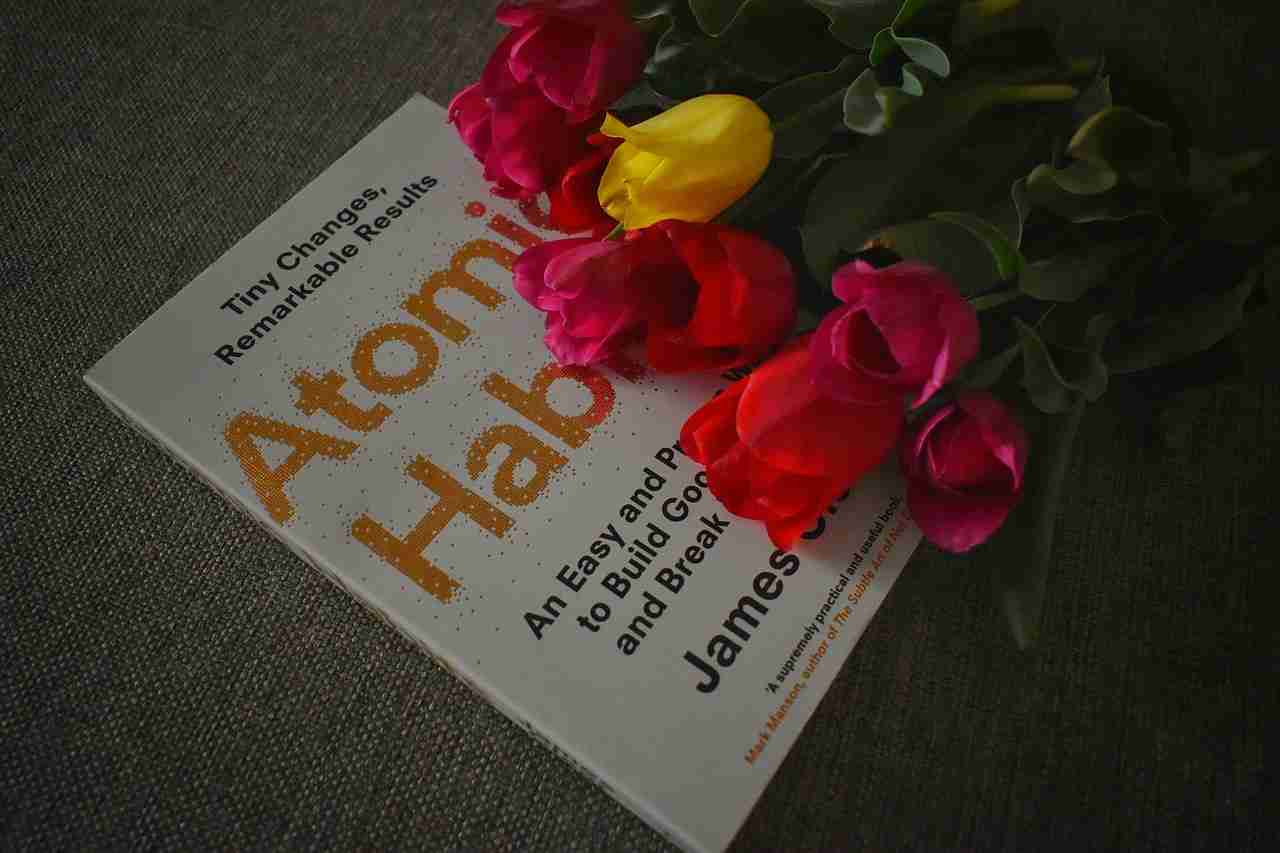Introduction
In Atomic Habits, James Clear argues that big goals shouldn’t be your main focus in life. Instead, you should be utilizing frequent, repetitive actions and systems to help develop habits that stick.
The significant changes you want to make in your life depend more on creating small habits than sizable shifts. For example, suppose you want to get in shape. In that case, your best bet is eating slightly better, exercising regularly, and getting enough sleep. Instead of wasting your time setting unachievable goals with drastic changes, all you have to do is make one minor change daily. This theme runs throughout Atomic Habits. The quality of your life depends on the quality of your habits. Some habits are small like an atom. As these atomic habits accumulate, they can make a significant impact on your life.
Why Tiny Changes Make a Big Difference
What Are Habits?
Habits are small, everyday behaviors that we perform automatically, with little or no thought. Habits are also powerful. We are what we do every day. In this way, habits form our identity. So, when repeated daily, even the smallest actions have a considerable effect. This is a power of habits.
That said, positive change requires patience. But you can be confident that good habits keep you on the right trajectory, even if you don’t see results right away. Making significant changes in your life through habits doesn’t require significant upheaval. Tiny changes to your behavior are often enough to lead to the desired results.
Why Is It Hard to Build Good Habits?
Conditioning
Habits are built through conditioning. In effect, we tend to repeat satisfying behaviors until they become automatic. For example, when you were a baby, you would have sucked your thumb to calm yourself. This calming feeling was the satisfying consequence that encouraged you to repeat the behavior. This is why bad habits can be so hard to break and replace with good habits.
Fortunately, you can also use conditioning to help build good habits. As adults, we can engage with habits like going on a morning run because we get an endorphin buzz and feel more productive.
Minor Improvements
We fail to create good habits because humans tend to convince themselves that massive success requires massive action. It is easy to underestimate the value of making minor improvements, like going on a morning run each day. However, the benefits will accumulate since the habit is repeated daily.
Compound Interest
Atomic habits are the compound interest of self-improvement. Just like money multiplies to produce compound interest, the effect of your habits multiplies as you repeat them. But this also means that habits may appear to make little or even no difference on any given day. Still, the impact they deliver over months or years can be enormous.
Our goal is to develop compound interest in healthy habits. But bad habits compound too. As
mentioned earlier, putting off a project until tomorrow may seem to make no difference at the
time. But if you repeat this 1% error day after day, these tiny errors can compound into toxic
results.
Success is the product of daily habits, not once-in-a-lifetime transformations. You will not identify immediate positive outcomes from daily habits, as outcomes will always lag behind habits. In fact, habits often appear to make no difference until you cross a threshold and unlock a new performance level.
Forget About Goals, Concentrate on Systems
Goals are the results you want to achieve. Systems are the processes that lead to those outcomes. Your focus should be on the systems and practical strategies. If you adopt this mindset, the goal will take care of itself. Clear provides a few reasons why systems manage goals:
- Winners and losers have the same goals. For example, every Olympian wants to win a gold medal, and every entrepreneur wants to be successful. Merely creating this goal does not guarantee success. Otherwise, we would have millions of Olympic gold medalists, and every entrepreneur would achieve their dream. So, it’s the winners’ systems that help them achieve success and get remarkable results.
- Achieving a goal is only a momentary change, so goals can actually restrict your happiness. We assume that reaching goals will bring immediate happiness. But this approach to life sets us up to fail. For example, we may still feel unfulfilled even after achieving our goal. And if we fail, we feel cheated out of a chance at happiness.
- Goals do not create long-term progress, but systems do.
Habit Loops
Habits are self-reinforcing. This means that doing the habit and receiving the reward strengthens your desire to do it again. You can use this to your advantage when you want to change your behavior. There is a clear step-by-step process that actions travel through to become a habit. Here are the simple steps for big changes; The four steps of the habit loop combine to form a neurological feedback loop. This loop is:
cue -> craving -> response -> reward
Ultimately, this loop allows you to create and reinforce automatic habits. The more you practice this habit loop with any particular habit, the more it will become automatic. Clear provides four laws that describe the way you can start building habit loops.
Core Principles
Here are the three core principles from Atomic Habits by James Clear, summarized briefly:
- Make it Obvious: Design your environment to trigger good habits and remove cues for bad ones. The clearer the signals for positive behaviors, the easier it becomes to repeat them.
- Make it Attractive: Pair a habit you want to form with something you enjoy, making the behavior more appealing. The more attractive the habit, the more likely you’ll stick to it.
- Make it Easy: Focus on simplicity. Reduce friction for your habits and make them as easy to do as possible, removing barriers and starting with small actions that compound over time.
Also Read: Top 5 books you must read in yours 20s

